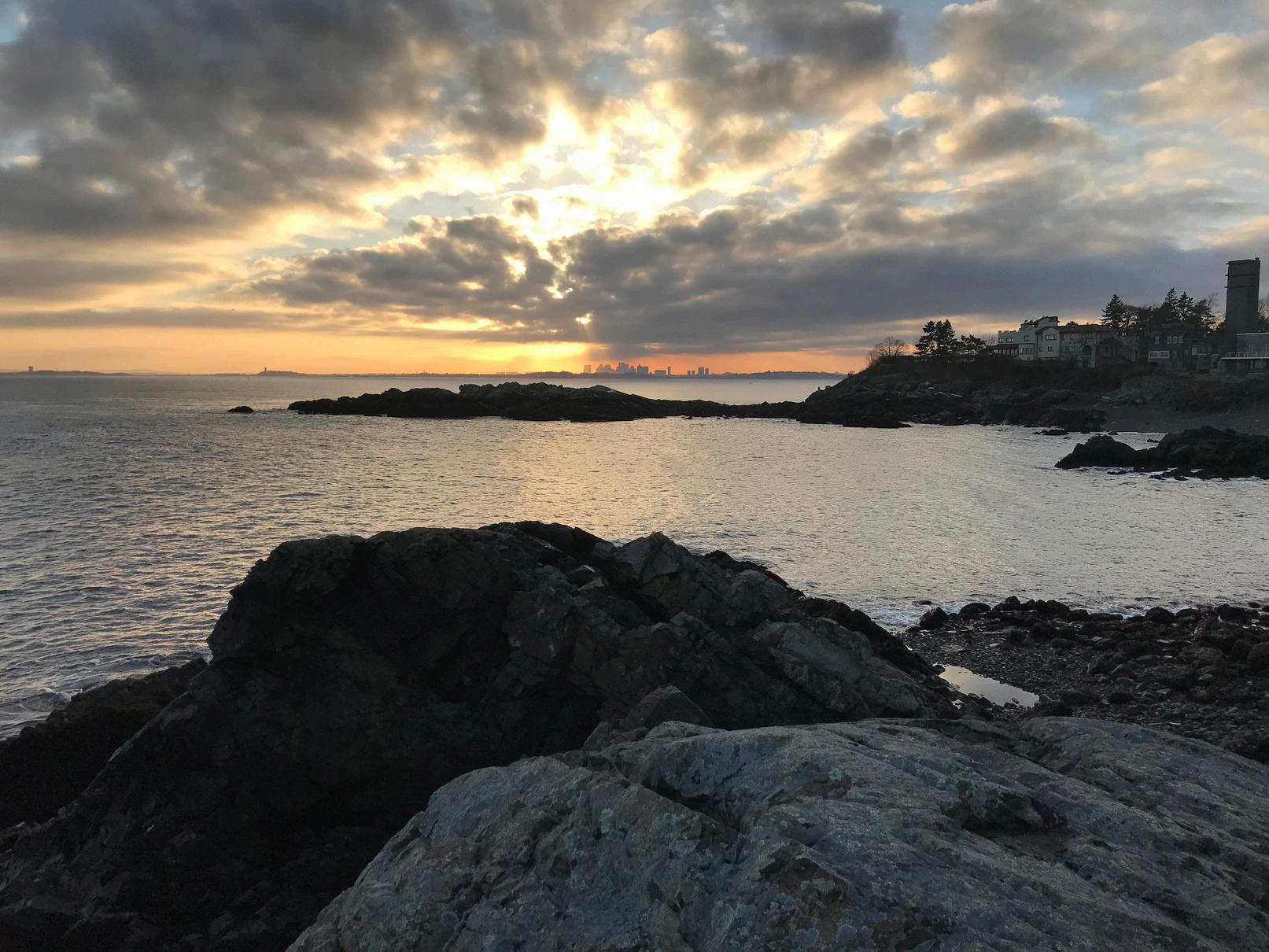
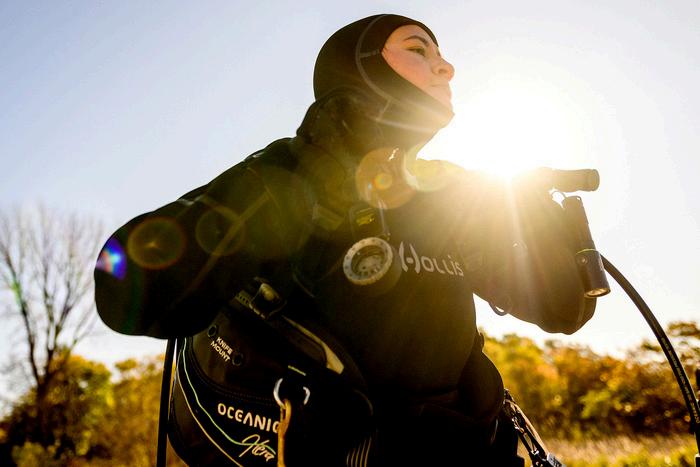







Dear Friends,
Greetings from the Nahant Campus, which serves as the home of the Marine Science Center (MSC) and Coastal Sustainability Institute (CSI)! After a hiatus in our Annual Reports, that was partly driven by COVID-19, we are thrilled to restart these reports to highlight the many great things happening in our community. Our successes for 2023 are evident in all dimensions of our community, including the research and academic pursuits of our undergraduate and graduate students, postdoctoral scholars and faculty, and the outstanding community engagement activities of our outreach program. As is always the case, there is too much for me to cover in this short note (I ask forgiveness for any unintentional omissions!) and while I touch on some highlights below, I hope you will take some time to read our Annual Report and learn about all of the wonderful things happening here in our community!
Our students continue to be the catalysts for much of what we do. Their successes include winning prestigious fellowships and awards as well as hosting the Annual Graduate Student Research Symposium. You will also see that many of our students and postdoctoral scholars are authors on the numerous publications that have resulted from the innovative research taking place here on the Nahant Campus Finally, we were thrilled to launch our new PhD program in Human Behavior and Sustainability Science, which will foster new domains of expertise and impact within our community and beyond
I would also like to recognize the exceptional engagement by everyone in our community to promote diversity and inclusion at the MSC/CSI as part of Professor Aron Stubbins’ leadership as Chair of our Diversity and Inclusion Committee. Chief among these efforts was conducting our 7th Annual Climate Survey, forming the Field Safety Working Group that is now a formal departmental committee, updating our Principles of Community statement, finalizing our Land Acknowledgment, and hosting our You Are Welcome Here event Aron did a stellar job as Chair and we are excited to be led by Loretta Fernandez when she assumes this role in 2024.
Our faculty also had another great year with many achievements on the publishing and funding fronts. Some of our many grant recipients include Cristina Schultz (NOAA), Jen Bowen (Simons Foundation), and David Kimbro (NSF) 2023 was also the year that Professor Joe Ayers, after a long and distinguished career at Northeastern, retired As you will see in the following pages, Joe was a very important part of our community and we wish him well in his new endeavors!
Finally, our Outreach Program, led by Sierra Muñoz, continues to shine with all of its hard work engaging with the public to enhance ocean literacy with its High School Marine Science Symposium and by providing excellent youth educational opportunities through programs like the Coastal Ocean Science Academy Sierra has also been outstanding in efforts to serve our community, whether it is developing broader impacts activities for grant proposal submissions or producing this Annual Report!
I hope you all enjoy learning more about our year and I remain most grateful for your support!
Cheers, Geoff
Doherty Professor and Chair Department of Marine and Environmental Sciences Director, Coastal Sustainability Institute and Marine Science Center
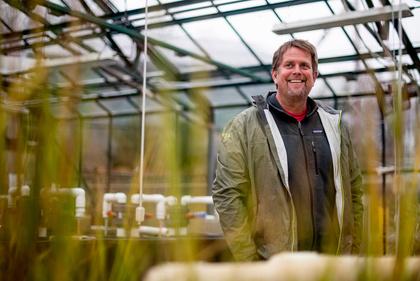
In 2023, our community continued to leverage our interdisciplinary teaching and research expertise to explore fundamental issues in the life sciences and create new knowledge and innovative solutions that promote the sustainability of human-natural systems
Our focus on interdisciplinary, convergent research is strongly shaped by the co-development of projects with stakeholders with the goal of creating cleaner, safer, smarter and more equitable communities. Our approach and outcomes greatly benefit from collaborative efforts within the Coastal Sustainability Institute and the Marine Science Center, as well as the appointment of joint faculty with the Department of Civil and Environmental Engineering, the School of Public Policy and the Department of English
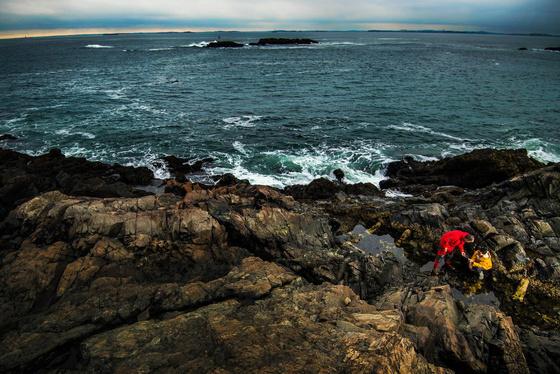
In 2023, we continued to serve 560+ outstanding students across our family of four undergraduate majors (Environmental and Sustainability Sciences, Environmental Studies, Ecology and Evolutionary Biology, and Marine Biology). Regardless of major, we seek to enhance the analytical and critical thinking skills of our students while leveraging hands-on experiences that better prepare them for their professional careers.
Our K-12 Outreach Programs, BEACHES workshop, MassBays partnership, and community engagement programs continued to prioritize providing STEM experiences and pathways for marginalized and stakeholder communities. In 2023, we engaged with over 5,000 students, teachers, and stakeholders.
2023 marked the retirement of Dr. Joseph Ayers, who was an integral presence in the MSC community for over four decades since his arrival in 1979 Joe served as the Director of the Marine Science Center (MSC) from 1991 to 2001 and was instrumental in facilitating initial renovations to the Murphy Bunker to enhance the research impact of the MSC. Moreover, Joe was incredibly supportive of the research efforts of resident and visiting faculty, postdoctoral fellows and graduate students. Joe was a true pioneer in the field of marine robotics, working to reverse-engineer the nerve networks controlling lobster behavior that led to the design his now famous ‘robo-lobsters’
During his tenure, Dr Ayers taught or mentored countless undergraduates in Northeastern’s Biology Department and continued these efforts in the newly formed Department of Marine and Environmental Sciences in 2012 In addition, Joe mentored over two dozen graduate students and postdoctoral fellows, many of whom are now pursuing productive careers in academia and in the private sector. In 2023, Joe capped his prolific career in scholarship, which included numerous patents, with the publication of a comprehensive textbook, Biological Intelligence for Biomimetic Robots (MIT Press), exploring how neuroethology informs the development of robots.
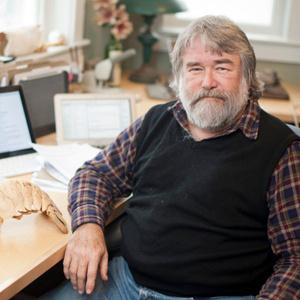
Joe’s work has resonated in multiple domains ranging from enhancing our fundamental understanding of how neurological systems work to the development of robots for homeland security applications and even the development of a fully autonomous, robotic fish farm design for mariculture
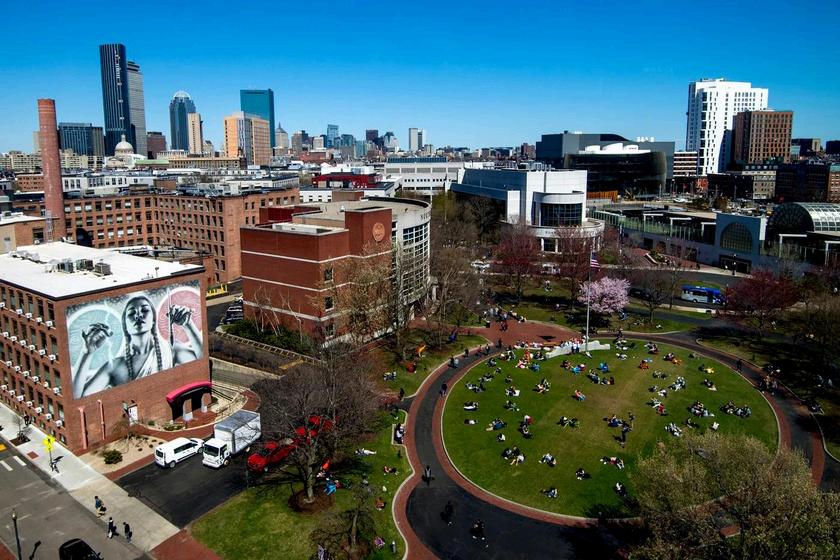
Our talented team of 35 faculty includes 9 dedicated teaching professors and 25 research professors More than half of our faculty are jointly appointed to facilitate collaborative efforts with other disciplines including psychology, civil and environmental engineering, environmental policy, and the humanities
Our faculty continue to excel at enhancing experiential learning opportunities and practical applications within their courses We seek to address emerging challenges and questions by developing new courses that focus on stakeholder engagement, statistics and analytical modeling, food security, and the blue-green economy
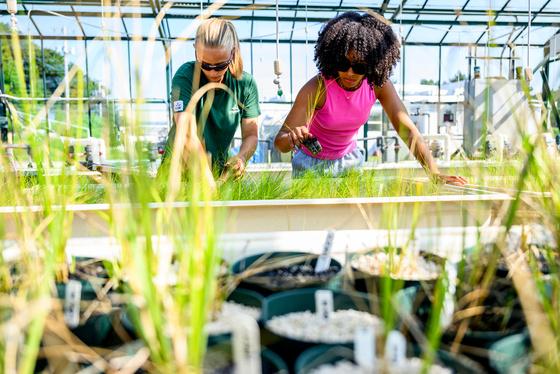
In 2023, 560+ undergraduate majors built the foundation for their future careers in environmental and sustainability sciences, marine biology, environmental studies, and ecology and evolutionary biology
Our courses and seminars serve students across multiple departments and colleges to further bolster our interdisciplinary impact.
Our graduate students in Marine & Environmental Science (PhD), Human Behavior and Sustainability Science (PhD), Environmental Science & Policy (MS), Climate Science and Engineering (MS) and Marine Biology (MS) conducted innovative research, received prestigious research awards, and continued to grow our capacity for peer and tiered mentoring across classroom and lab spaces
Human populations and economies depend on the myriad services provided by natural ecosystems The sustainability of this mutualism is increasingly threatened by major environmental challenges including sea-level rise, storm surge, collapsing fisheries, and pollution. The Coastal Sustainability Institute (CSI) and Marine Science Center (MSC), both based on the Nahant campus, seek to explore fundamental questions in marine science as well as enhance the sustainability of coastal communities by addressing these challenges in collaboration with stakeholders. These collaborations are enriched by our faculty’s expertise in environmental sensing and big data analytics, climate change science and modeling, and the security and sustainability of coastal resources
Our interdisciplinary approach combines scientific research, technological advancements, societal insights, policy analysis, and collaboration with global partners from academia, industry, nonprofits, and government agencies. In 2023, our researchers were awarded over $3.8 million to support their work by diverse entities including the National Science Foundation, the Environmental Protection Agency, The Nature Conservancy, NASA, the National Ocean and Atmospheric Administration, the US Army Corps of Engineers, and numerous foundations and research councils
CLIMATE CHANGE SCIENCE & MODELING
SECURITY & SUSTAINABILITY OF COASTAL RESOURCES
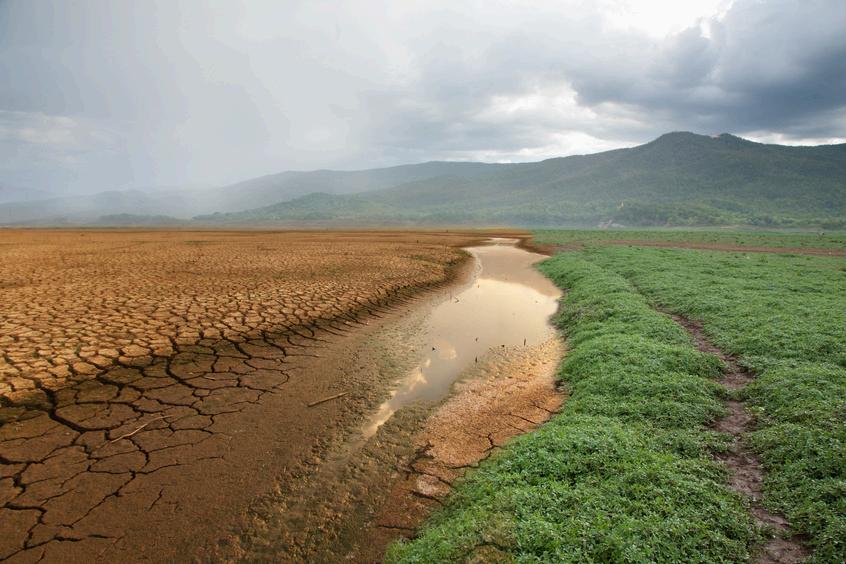
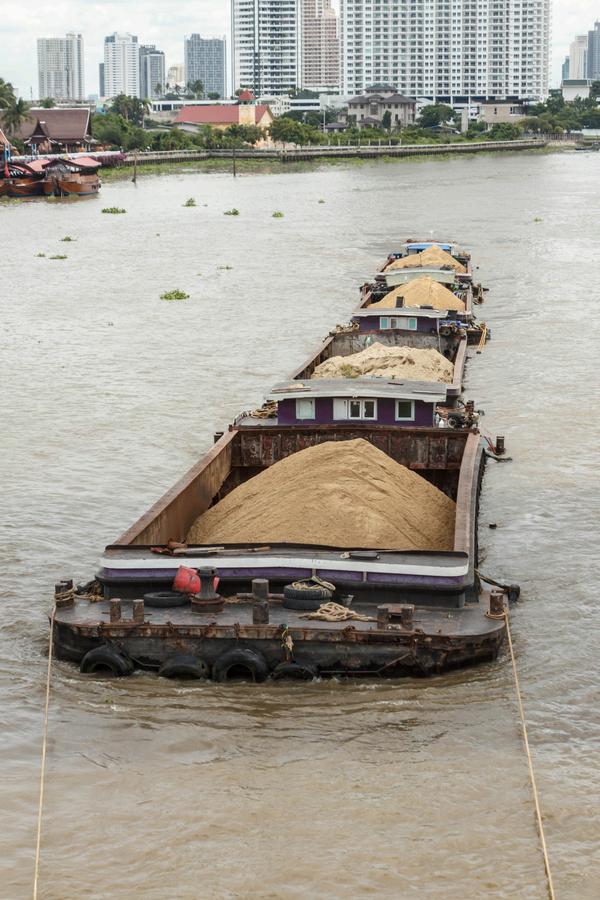
ENVIRONMENTAL SENSING & BIG DATA ANALYTICS
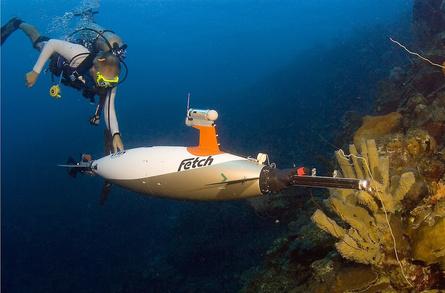
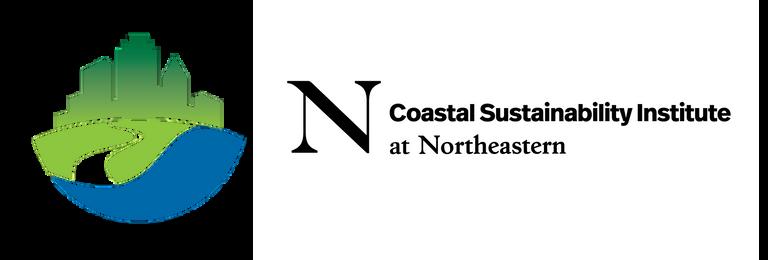
Over the past year our researchers discovered new species, advanced theory and analytical approaches (including AI/ML) and studied the complex dynamics of species interactions and their consequences for natural ecosystems
Dr Katie Lotterhos, supported by an NSF CAREER award, leveraged machine learning and genomic tools to predict species vulnerabilities to climate change. Dr. Steve Vollmer and his team published a high profile paper in Science that addresses the genomic basis of disease resistance in tropical corals And Dr. Dan Distel and the Ocean Genome Legacy continued to build the impact of of its marine biorepository
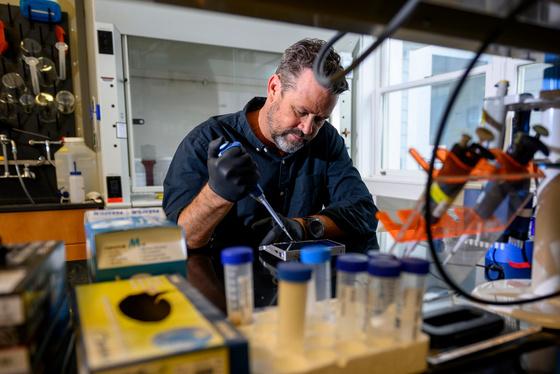
CSI/MSC continues to grow an exciting partnership with Gloucester Marine Genomics Institute (GMGI), a marine biotechnology research powerhouse; this connection leverages mutual expertise between scientists to advance scientific knowledge connecting aquatic systems, human health, and coastal sustainability efforts. Several joint CSI/GMGI events took place in 2023 to enhance the collaboration and to lift the voices of junior scientists from both institutes.
Vollmer, S., Selwyn, J , Despard, B , & Roesel, C 2023 Genomic signatures of disease resistance in endangered staghorn corals Science doi:10 1126/science adi3601
Pavlopoulos, G.A., Distel, D. et al., 2023. Unraveling the functional dark matter through global metagenomics. Nature. doi:10.1038/s41586-023-06583-7
Lotterhos K. 2023. The paradox of adaptive trait clines with non-clinal patterns in the underlying genes. Proceedings of the National Academy of Sciences doi:10 1073/pnas 2220313120
Dan Distel
Cell Signaling Technology, Inc
Ocean Genome Legacy Student Research in DNA Preservation
Katie Lotterhos
National Science Foundation
CAREER: Evaluation of machine learning algorithms for understanding and predicting adaptation to multivariate environments with a Model Validation Program (MVP)
Steven Vollmer
National Science Foundation
Multi-omic bases of coral disease resistance
Monitoring and predicting environmental change remains one of the most critical efforts of our time, and scientists at CSI/MSC continue to develop and assess methods to detect, monitor, and predict climatological and ecological shifts on local and global scales.
Newly hired Foley Family Assistant Professor Dr. Cristina Schultz received funding through the NOAA Marine Carbon Dioxide Removal (mCRD) program to develop a coupled benthic-pelagic biogeochemical model to evaluate the effectiveness of mCDR interventions Dr. Jim Chen established ocean and wave dynamics models for several New England coastal regions, advancing our understanding of regional storm systems and their impacts.
Chen, Q, Wang, N, and Chen, Z, 2023 Simultaneous mapping of nearshore bathymetry and waves based on physics-informed deep learning, Coastal Engineering. doi:10.1016/j.coastaleng.2023.104337
O’Brien, D and Mueller, A. 2023 In pursuit of local solutions for climate resilience: sensing microspatial inequities in heat and air pollution within urban neighborhoods in Boston, MA. Sustainability. doi:10.3390/su15042984
Pezzi, L, Beadling, R du Plessis, M Gille, S Josey, S, Shi, J-R, Santini, M, Souza, E, MacGilchrist, G, Schultz, C 2023 'Southern Ocean' in State of the Climate in 2022 Bulletin of the American Meteorological Society doi:10.1175/BAMS-D-23-0077.1
Price, W, Patterson, M. 2023 Microscale flow dynamics and particle capture in scleractinian corals: I Role of the tentacles Coral Reefs doi:101007/s00338023-02385-5
Varade, M., Choi, M., Helmuth, B., and Scyphers, S. 2023 Catching versus counting: comparing the proenvironmental attitudes, behaviors and climate concerns of recreational fishers and citizen scientists Sustainability 15(1), 307 doi:103390/su15010307
SELECTED GRANTS
Loretta Fernandez, Amy Mueller National Institutes of Health Responding Together to Global Challenges
Cristina Schultz
National Oceanic and Atmospheric Administration
mCDR 2023: Developing a coupled benthicpelagic biogeochemical model to evaluate the effectiveness of mCDR interventions
Jonathan Grabowski
National Oceanic and Atmospheric Administration
Mapping the spatial footprints of key northeast groundfish stocks and their habitat use
Jim Chen
U.S. Geological Survey Collecting Ecological Data and Models of Living Shoreline Restoration Projects (MD, NJ, NY, VA)
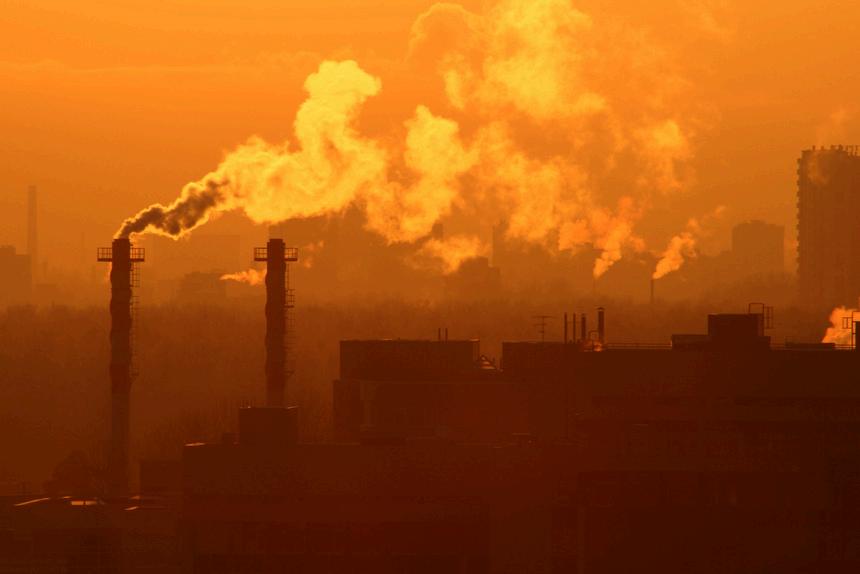
Our faculty continued to explore key ecological and evolutionary processes at multiple levels, which are central to improving our understanding of climate change and other agents of environmental change. Whether in the field on rocky shores, rivers and salt marshes, or in the laboratory, our researchers leverage organismal biology, manipulative experiments, and genomic tools to understand, for example, adaptation to environmental change and the processes shaping the structure and dynamics of natural communities.
Drs. Kimbro, Trussell, and Gouhier were awarded a new NSF grant that seeks to examine how biophysical coupling and ecological subsidies influence the dynamics and functioning of salt marsh habitats at Plum Island, MA, an NSF Long-term Ecological Research (LTER) site. Dr. Jon Grabowski continued to monitor lobster and shellfish communities and provide these industries with crucial insights that inform sustainable harvests.

Schenck, F , DuBois, K , Kardish, M , Stachowicz, J , Hughes, A. 2023 The effect of warming on seagrass wasting disease depends on host genotypic identity and diversity Ecology doi:10 1002/ecy 3959
Powers, S., and Grabowski, J. 2023. Changes in water flow alter community dynamics in oyster reefs. Ecosphere. doi:10.1002/ecs2.4405
Pillai, P , and Gouhier, T. 2023 Metamicrobiome diversity promotes host-microbial mutualisms Journal of Evolutionary Biology doi:10 1093/jeb/voae019
Heineke M., Kimbro, D., Zabin, C., and Grosholz, E. 2023. Harnessing trophic cascades to improve foundation species restoration: A meta-analysis. Ecosphere. doi:10.1002/ecs2.4675
David Kimbro, Geoffrey Trussell, Tarik Gouhier
National Science Foundation
The influence of biophysical coupling and cross-scale interaction on ecosystems of the Plum Island LTER
Jennifer Bowen, Randall Hughes
National Science Foundation
LTER: Plum Island Ecosystems, the impact of changing landscape and climate on interconnected coastal ecosystems
Jonathan Grabowski
National Oceanic and Atmospheric Administration
Examining social impacts in the American Lobster fishery
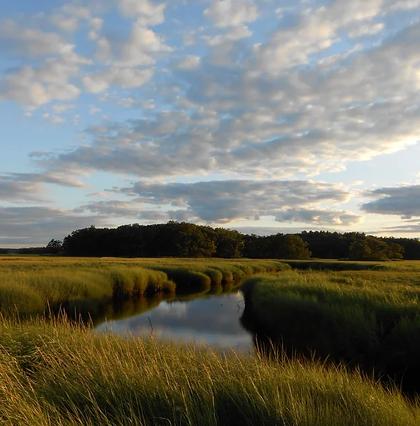
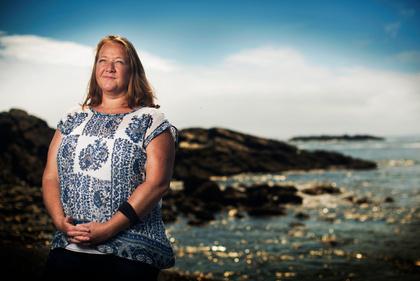
Our research provides key insights into environmental and aquatic systems to better manage and protect aquatic resources. In 2023, Dr. Aron Stubbins continued to investigate the carbon cycle and plastic’s role in it in both marine and riverine systems. Dr. Sam Munoz’s work utilizing sedimentary records of large riverine floods to assess risks and improve resilience was bolstered by an NSF CAREER award. And Drs. Fernandez, Grabowski, Hughes, and Kimbro are investigating methods to enhance the sustainability of aquaculture via mitigation of parasites and micropollutants
Bowen, J. 2023 Microbial ecology in a changing climate In: Kennish, M, H Paerl, and J Crosswell, J, eds, Climate Change and Estuaries. doi:10.1201/9781003126096
Munoz, S., Dee, S, Luo, X, Haider, M, O’Donnell, M, Parazin, B, Remo, J 2023 Mississippi River low-flows: context, causes, and future projections Environmental Research: Climate doi:101088/2752-5295/acd8e3
Castillo K., Bove C., Hughes A., Powell M., Ries, J., Davies, S 2023 Gene expression plasticity facilitates acclimatization of a long-lived Caribbean coral across divergent reef environments Scientific Reports doi:101038/s41598-024-57319-0
Stubbins, A., Zhu, L, Zhao, S, Spencer, R, and Podgorski, D (2023) Molecular signatures of dissolved organic matter generated from the photodissolution of microplastics in sunlit seawater Environmental Science & Technology doi:10.1021/acs.est.1c03592
Loretta Fernandez, Jonathan Grabowski, Randall Hughes, David Kimbro
National Oceanic and Atmospheric Administration
Determining how aquaculture grow-out methods can reduce the negative effects of parasites and micropollutants on farmed oysters
Samuel Muñoz
National Science Foundation
CAREER: Sedimentary signatures of large riverine floods to constrain risk and build resiliency
Aron Stubbins
National Oceanic and Atmospheric Administration
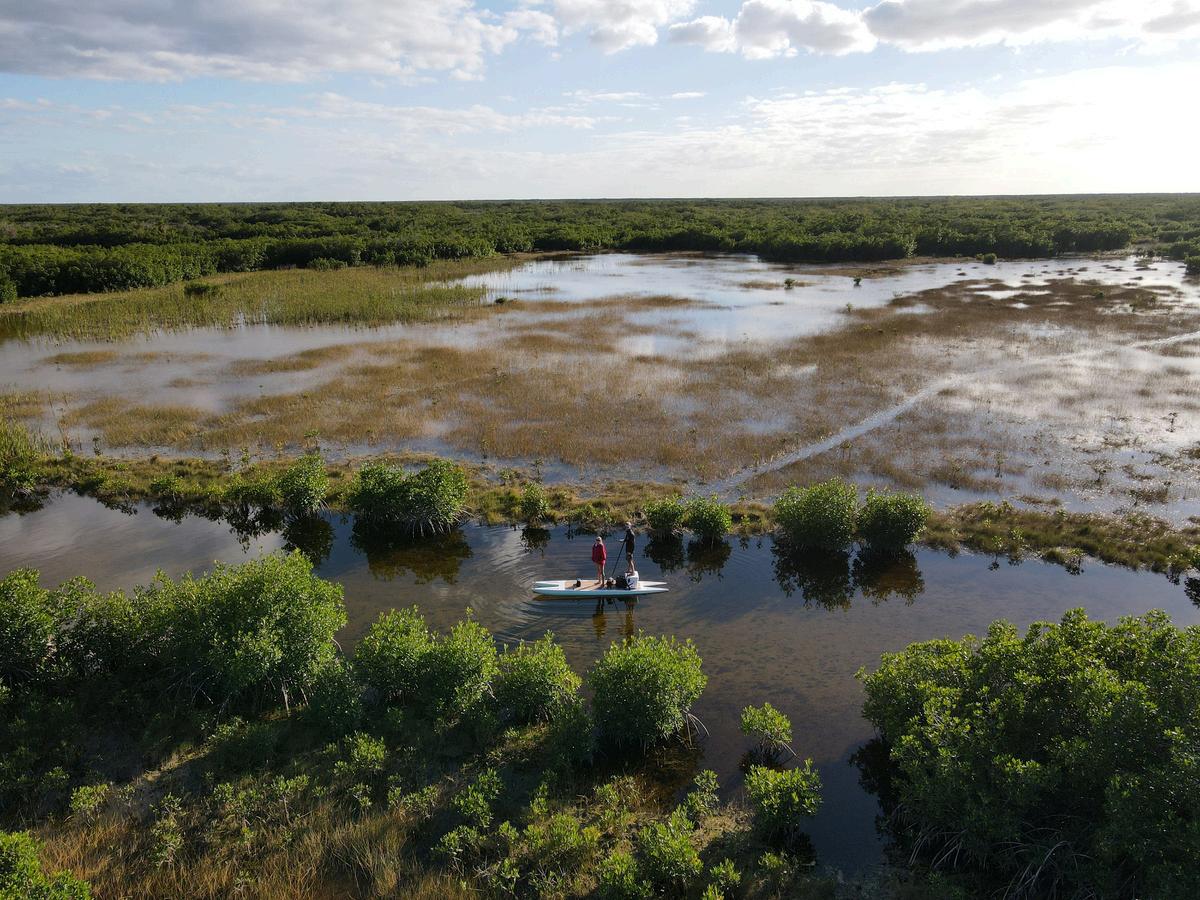
Remote sensing of river carbon fluxes to the ocean
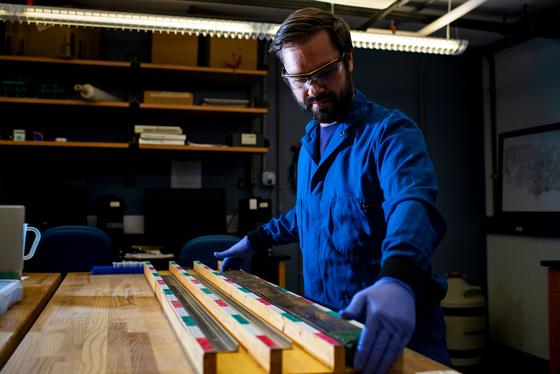
The intersections between ecosystems and people remain a powerful and emerging strand of research within MES/CSI. We are approaching the sustainability challenges of our time by intersecting science, policy, and culture, and exploring how engaging communities of stakeholders and practitioners can lead to more meaningful models for society and science
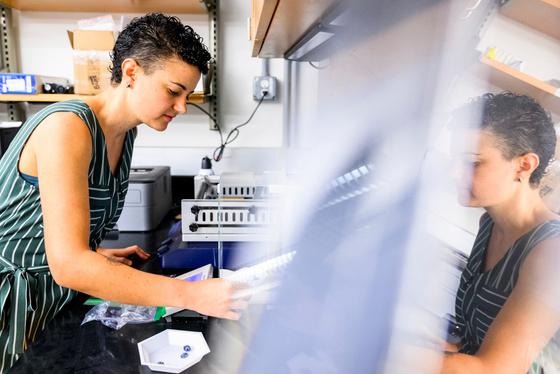
In 2023, Drs. Brian Helmuth and John Coley piloted using novel lenses to view and analyze human-nature relationships. New hires Dr. Damon Hall and Dr. Gabriela Garcia explored the ways that human decision making and relationships to nature influence conservation and resource management, via policy and agriculture, respectively
Kim, J , Betz, N , Helmuth, B., Coley, J. 2023 Conceptualizing human-nature relationships: Implications of human exceptionalist thinking for sustainability and conservation Topics in Cognitive Science. doi:10.1111/tops.12653
Harris, K., Hall, D., Finke, D. 2023. Who cares about monarch butterflies? Comparing US state wildlife action plans 2015–2025. Conservation Letters. doi:10.1111/conl.12976.
Chambers, M , van Rees, C , Bledsoe, B , Crane, D , Ferreira, S , Hall, D., Huang, Y , Lammers, R , Landry, C , Nelson, D , Shudtz, M , Suedel, B 2023 Nature-based solutions for leveed river corridors Anthropocene. doi:10.1016/j.ancene.2023.100417
Rafferty, F., Schusler, T., & Mestre, M. 2023. College student food security during the covid-19 pandemic. Journal of Agriculture, Food Systems, and Community Development. doi:10 5304/jafscd 2023 122 019
Jonathan Grabowski
National Oceanic and Atmospheric Administration
Increasing agency confidence in eelgrass maps used for project review and ocean planning
Randall Hughes
Army Corps of Engineers
Application of Engineering with Nature to Enhance Urban Marsh Resiliency as a Nature-Based Solution, Biodiversity, and Habitat
Gabriela Garcia
The Nature Conservancy
AAA Internship Support Award
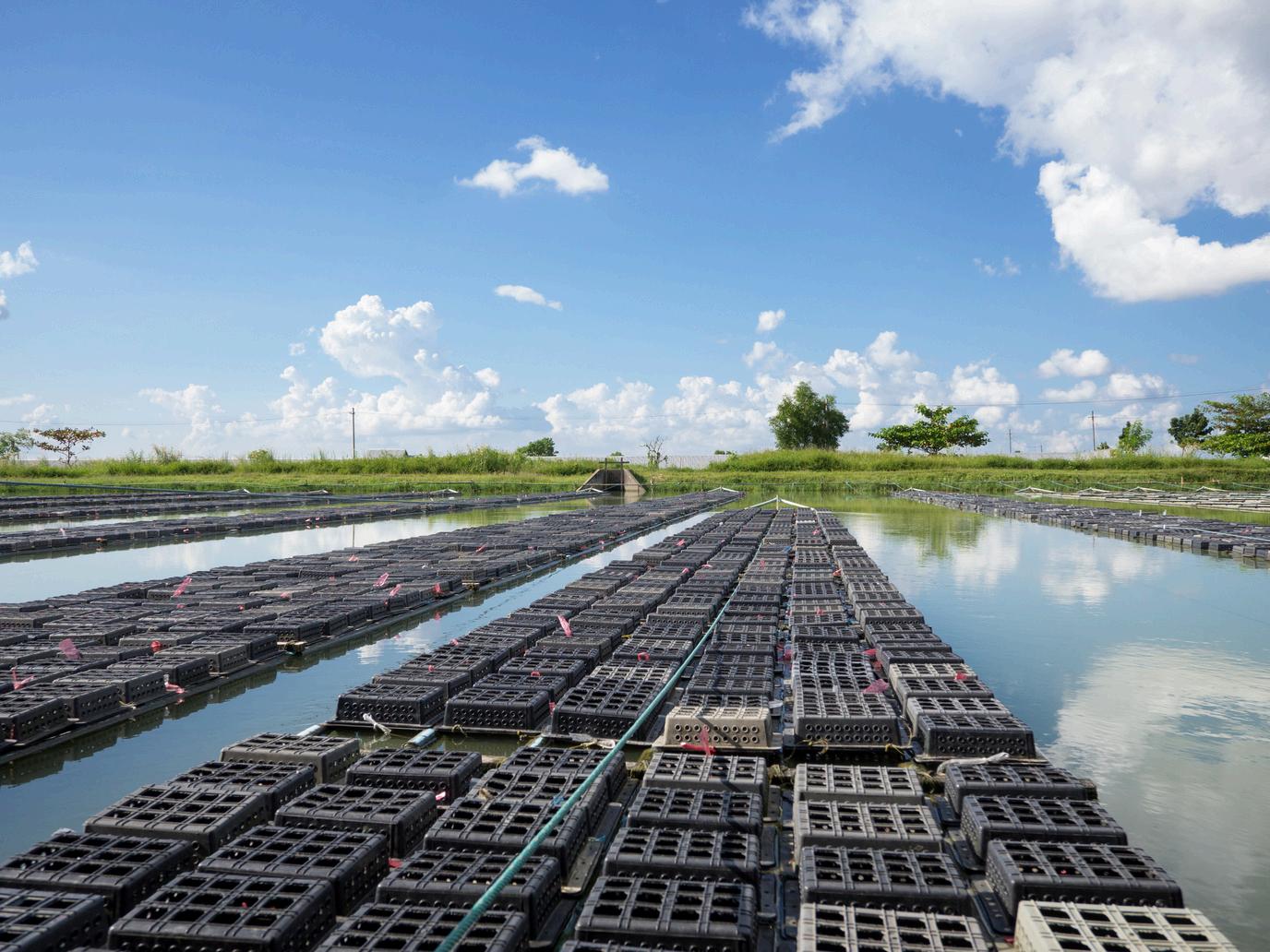
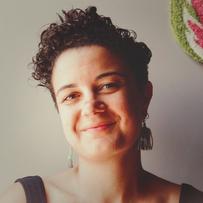
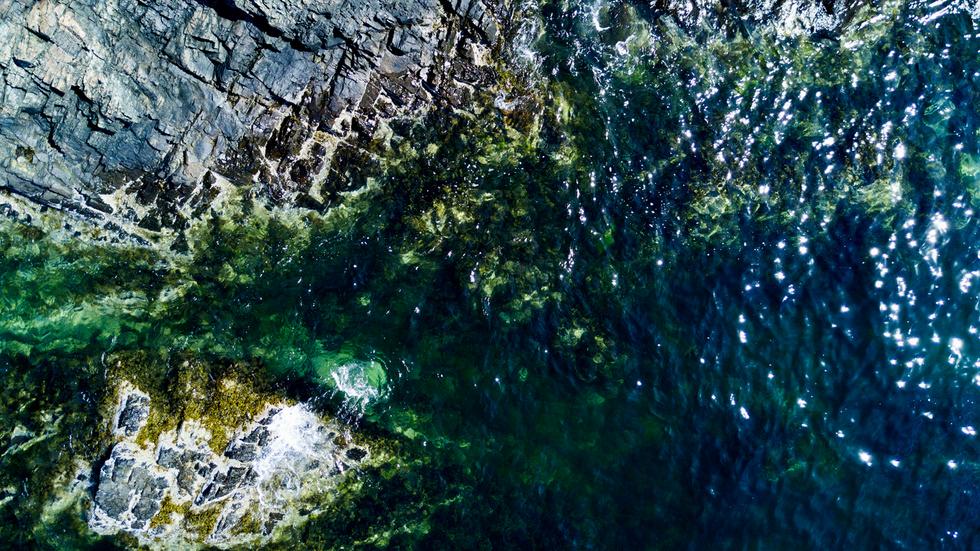
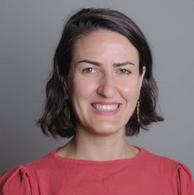
Our community was thrilled to welcome new faculty in 2023 whose expertise expands the domain of our research activity as well as our teaching and mentorship capacity.
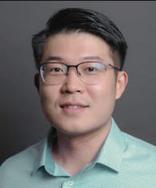
Dr. Gabriela Garcia (COS & CSSH) is ecologist exploring the intersection between plants and people, and how ecosystem dynamics on farms influence human decision-making Her work enriches efforts to build socio-ecological resilience and biodiversity in a changing climate
Dr. Damon Hall (COS & CSSH) brought his thriving Sustainability Science lab to Northeastern last Fall Associate Professor Hall examines the myriad interactions between social and ecological systems where science, policy, and culture meet.
Dr. Cristina Schultz (COS & COE) employs a novel combination of models, in situ data, and remote sensing and machine learning to understand feedbacks between ocean ecosystems, sediment, and circulation, and carbon and oxygen cycles.
Dr. James Dennedy-Frank (COS & COE) helps build better watershed management strategies for the good of humannatural systems in a changing climate by building a better understanding of watershed functions amidst meteorological, geologic, and ecological processes.
Dr. Rain Miao (COE & COS) joins our growing Civil and Environmental Engineering joint appointment team, bringing expertise in biotechnology for groundwater remediation, wastewater treatment, and public health
Dr. Alison Glassie (CHSS & COS) uses marine literature to explore the influence of the ocean’s cultural histories and ecological dynamics on the literatures of the Americas. Her current research investigates marine scientific knowledge and vernacular epistemologies of the marine environment
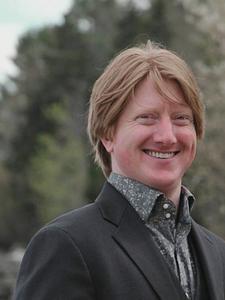
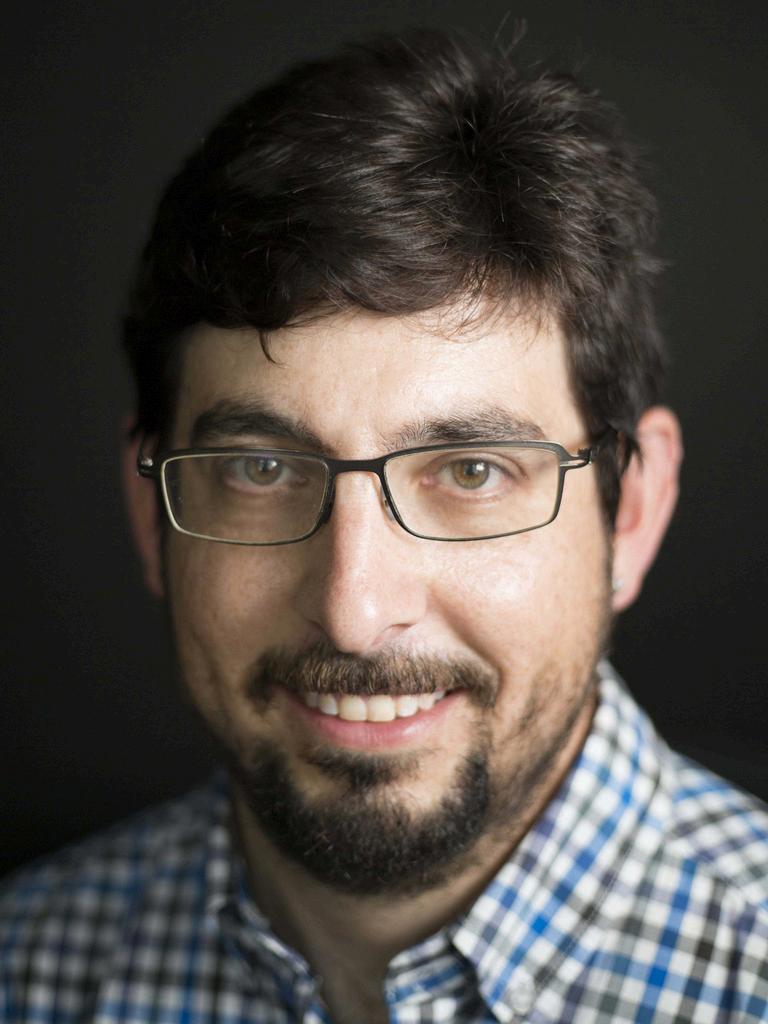
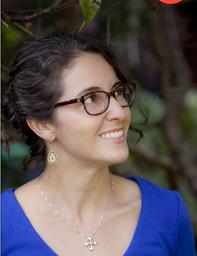
Our faculty continue to excel at enhancing experiential learning opportunities and weaving practical applications into their courses. MES worked in 2023 to address emerging challenges and questions by developing new courses that focus on stakeholder engagement, statistics and analytical modeling, food security, and the blue-green economy
In 2023, Dr. Tara Duffy and Dr. Dan Douglass received promotions to Teaching Professor, an acknowledgement of their service coordinating academic programs within MES, mentoring our student community, and designing and teaching innovative courses - like Dr Duffy’s New England Biomes, pictured at right exploring eelgrass biodiversity in Fall 2023, and
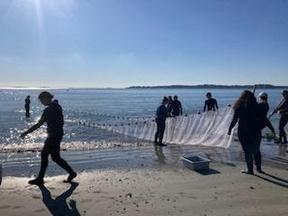
We welcomed new teaching faculty in 2023 who are bolstering our efforts to provide course content with real-world scientific and societal applications and to develop the next generation of sustainability leaders
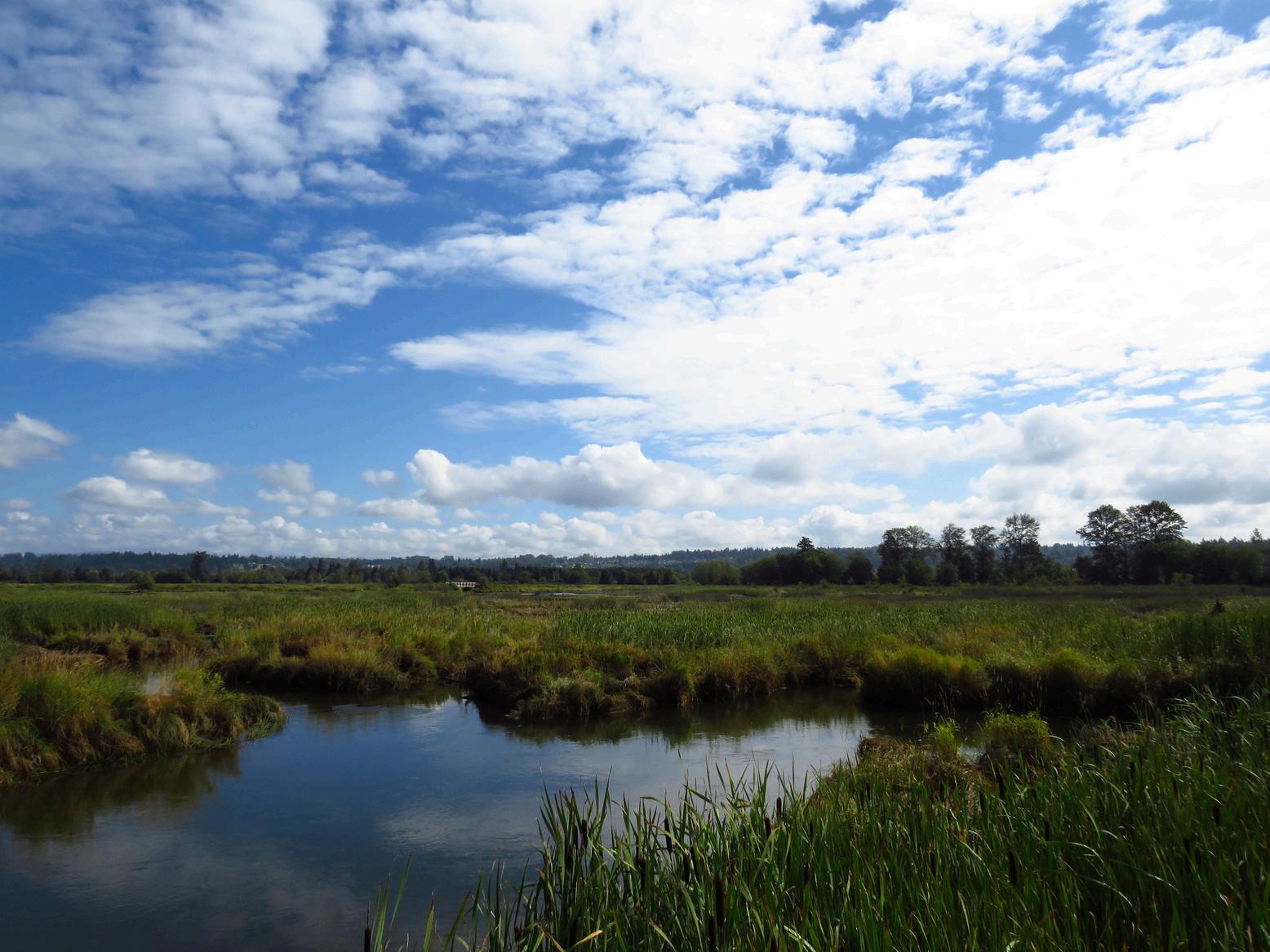
Dr. Koen Tieskens joined us to lend his expertise in environmental geography to our growing GIS program, focusing on integrating health and ecology through an ecosystem services lens.
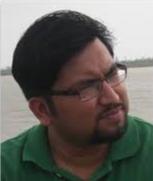

Dr. Subhrajit Saha brings to his courses an exciting expertise in agricultural ecology and sustainable agriculture, environmental management, and food production and connections to industry
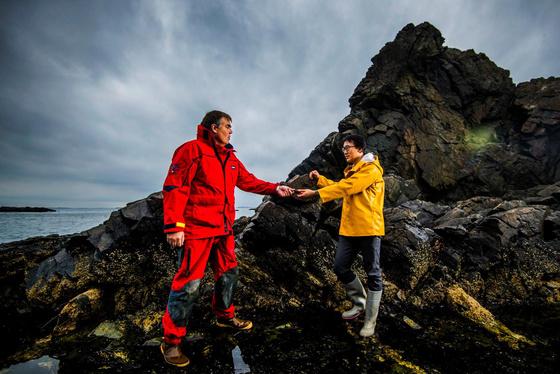
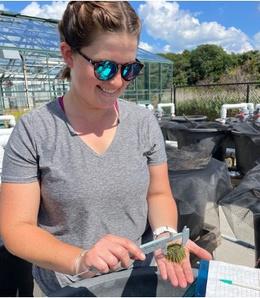
Our department is a leader in promoting graduate student experiential opportunities in research, government agencies, and environmental NGOs Our graduate students excelled this past year, coauthoring 10+ publications and presenting at over a dozen US & International conferences We were proud to celebrate the PhD defenses of Drs. Karen Aerni, James Corbett, and Kelsey Schultz.
Graduate students were instrumental to our successful broader impacts and STEM pathway advancement efforts in 2023, contributing to outreach programming for hundreds of K-12 students and teachers and community members. Our students were awarded prestigious fellowships and internship awards including NSF Graduate Research Fellowship Program (GRFP) honorable mentions, and recognitions and support from Sigma Xi, The Nature Conservancy, the American Museum of Natural History, the Coastal and Estuarine Research Federation, and others
SELECTED PUBLICATIONS CO-AUTHORED BY GRADUATE STUDENTS
Wiman C., Harden T., Shen Z., Curry, B., Reinders, J., Beighley, R., Muñoz S. 2023. Large floods on the lower Ohio River inferred from slackwater deposits. Progress in Physical Geography. doi:10 1177/03091333231208
Gould, J., Ries, J 2023 Linear extension and calcification rates in a cold‐water, crustose coralline alga are modulated by temperature, light, and salinity. Limnology and Oceanography.
doi:10.1002/lno.12474
Bardou, R , Osland, M , Scyphers, S , Shepard, C , Aerni, K., Alemu I, J , & Hughes, A R (2023)
Rapidly Changing Range Limits in a Warming World: Critical Data Limitations and Knowledge Gaps for Advancing Understanding of Mangrove Range Dynamics in the Southeastern USA Estuaries and Coasts. doi:10.1007/s12237-023-01209-7
Vineis, J., Bulseco, A., Bowen, J. 2023. Microbial chemolithoautotrophs are abundant in salt marsh sediment following long-term experimental nitrate enrichment. FEMS Microbiology Letters. doi:10 1093/femsle/fnad082
Undergraduate research is built into the DNA of our department; co-op, internship, and capstone opportunities in MES research labs have allowed hundreds of students to develop practical expertise and intellectual passion for their chosen fields. Our successful integration of undergraduate experiential learning is buoyed by NSF and College of Science funding, as well as generous and sustained support from family foundations

Since its inception in 2016, the Halverstadt Family endowment has supported over 90 undergraduates through funded research internships with MES labs
This internship program has created avenues for nearly a decade of undergraduates to work side by side with research faculty, graduate students, and co-ops in the labs, greenhouses, and tank farms at the Marine Science Center
A new internship program in partnership with the Richard W. and Elaine E. Barrett Foundation fostered 5 research interns in summer 2023, building unique pathways to hands-on research experiences in marine science, ecology, and genomics. The research program was a success in its pilot year, and will continue in 2024. Neida Villanueva Galarza, pictured right, was a 2023 Barrett Scholar in the Grabowski marine ecology and fisheries lab, and will now continue with that research team as a PhD student, where she can now be a mentor to future year’s interns
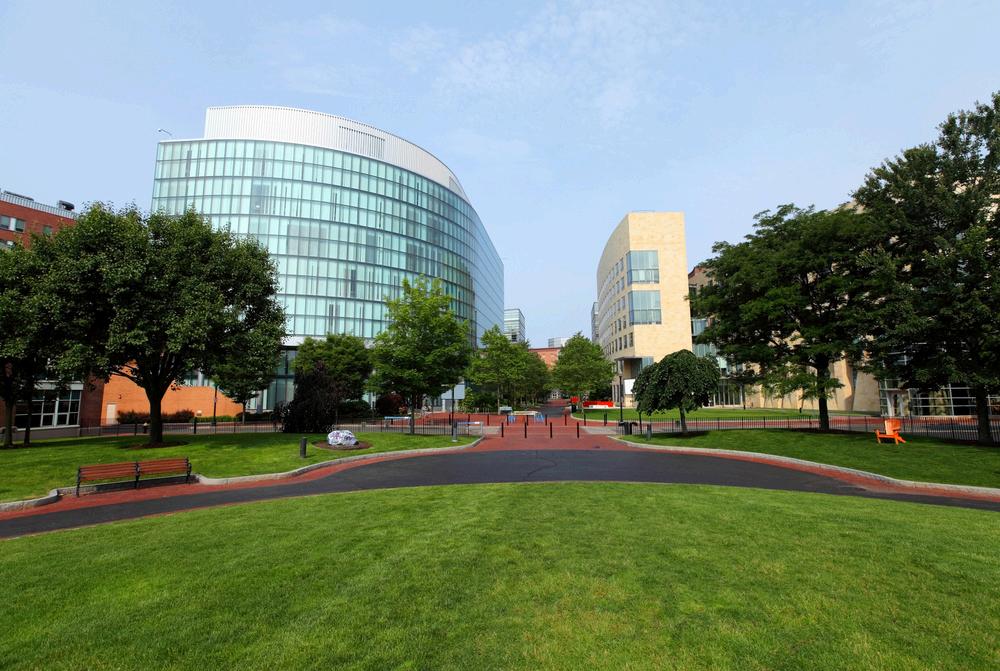
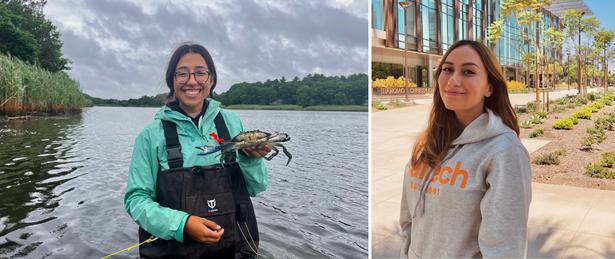
The Three Seas Program had another busy and successful year of immersive and field-intensive experiences in marine biology with a focus on research, applied marine sustainability, conservation, and restoration. This unique program, now in its 40th year, allows students to live and work in three distinct ecosystems at world-renowned research facilities in the Gulf of Maine (MSC/CSI in Nahant), Panama (STRI), and the North Pacific (Friday Harbor Labs). Support generously earmarked for the Three Seas Program has continued to make the program more accessible, supporting student travel and SCUBA equipment costs
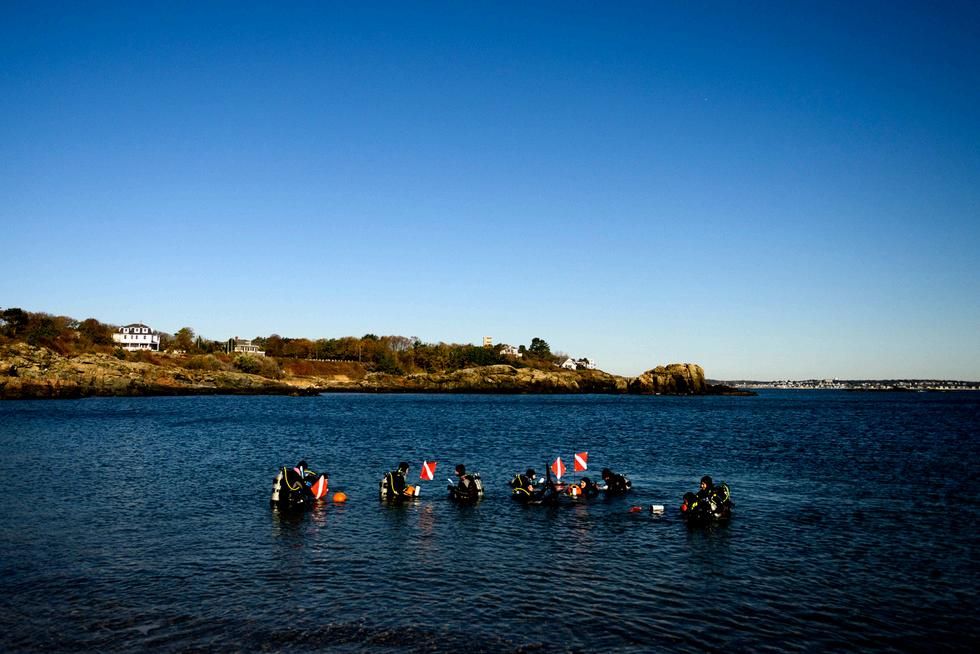
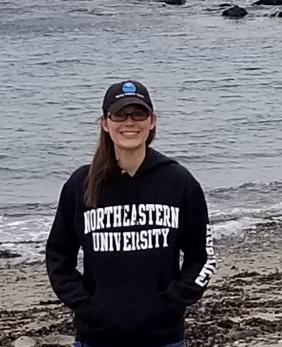
In 2023, Three Seas celebrated 30 Graduating students and welcomed 20 members of the incoming class (Cohort 44).
The Tree Seas Team welcomed Marissa Varade (LEFT), an alumni of Three Seas and the Helmuth Lab, as the new field operations specialist
Three Seas Alumna Sophia Troeh (‘22) received a prestigious Knauss Fellowship. Sophia is the second program alum in as many years to be awarded this honor Violet Doucette (Three Seas ‘20, Knauss ‘22) is now a legislative analyst collaborating with several environmental research organizations.
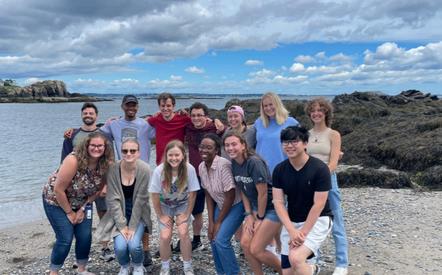
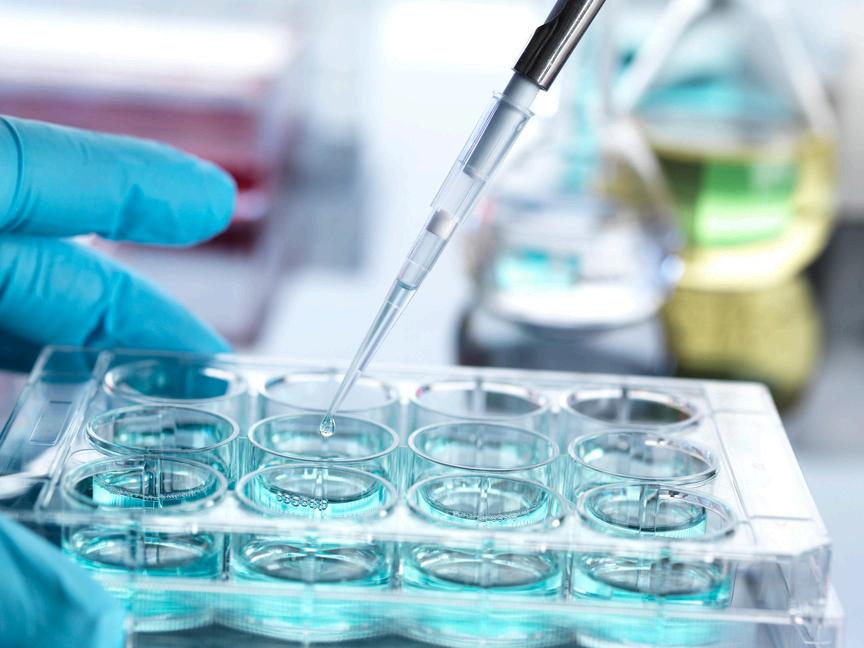
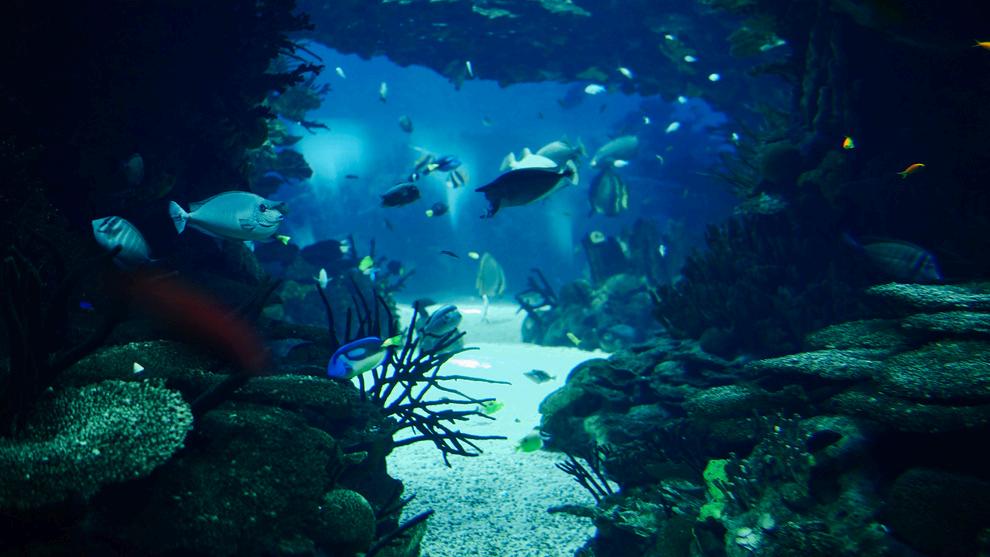
The Ocean Genome Legacy Center works to collect, study, maintain, and share biological materials and genomic data from our ocean. Through sponsorships, partnerships, and Coastal Sustainability Institute collaborations, OGL leads the way in investigating and preserving the sea’s biological diversity, empowering the scientific community to accelerate research that can drive recovery and protection.
In 2023, the OGL team led by Dr. Dan Distel contributed essential findings to innovative new global metagenomics research efforts, demonstrated patterns in methylation that have implications for understanding human disease, and developed new methods for DNA preservation in tissue
Rogers, A , Appiah-Madson, H., Ardron, J , Bax, N , Bhadury, P , Brandt, A , [ ] Distel, D., et al 2023. Accelerating ocean species discovery and laying the foundations for the future of marine biodiversity research and monitoring. Frontiers in Marine Science. doi:10.3389/fmars.2023.1224471
DeSanctis, M., Soranno, E., Messner, E., Wang, Z., Turner, E., Falco, R., Distel, D., et al 2023
Greater than pH 8: The pH dependence of EDTA as a preservative of high molecular weight DNA in biological samples PLoS One doi:10 1371/journal pone 0280807
Pavlopoulos GA, Baltoumas FA, Liu S, Selvitopi O, Camargo AP, Nayfach S, [...] Distel, D., [...] et al. 2023. Unraveling the functional dark matter through global metagenomics. Nature. doi:10.1038/s41586-023-06583-7
In support of the mission of Northeastern University, our Outreach Program communicates MES/CSI/MSC research with the public, inspires interest in marine careers, and builds ocean and environmental literacy in local communities In the past year, the Outreach Program served thousands of people, including youth, educators, scientists, resource managers, policy makers, and community members
We made meaningful changes to our School to Sea Program in 2023, a K-12 field trip program with neighboring environmental justice community Lynn, to utilize innovative hybrid classroom resourcing to maximize program reach and efficacy. We continued offering unique science communication training for graduate students and participants in the BEACHES program, and to enrich broader impacts for the MES community by providing faculty with mentorship opportunities and offering graduate students valuable outreach experience
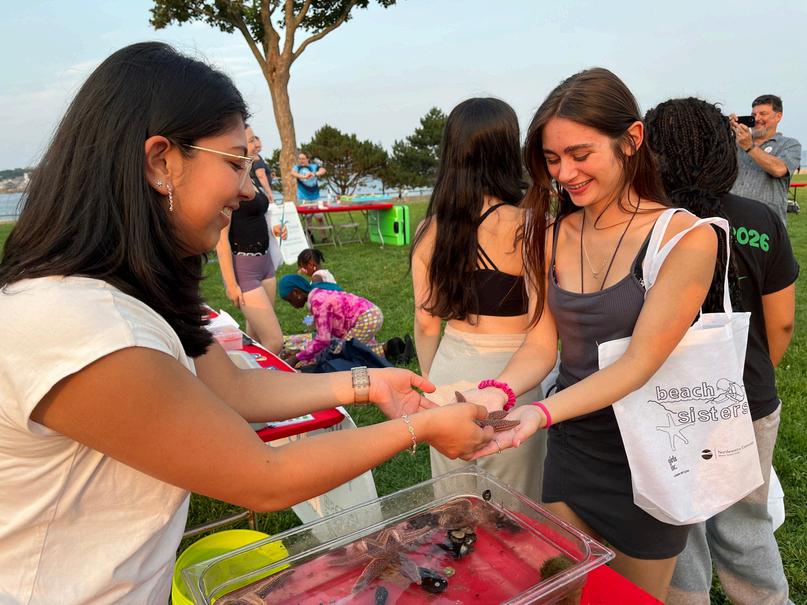
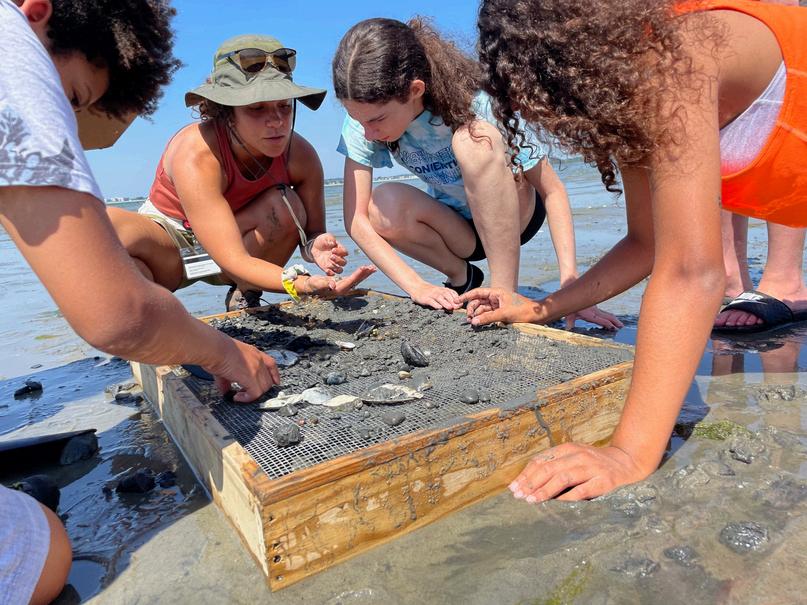
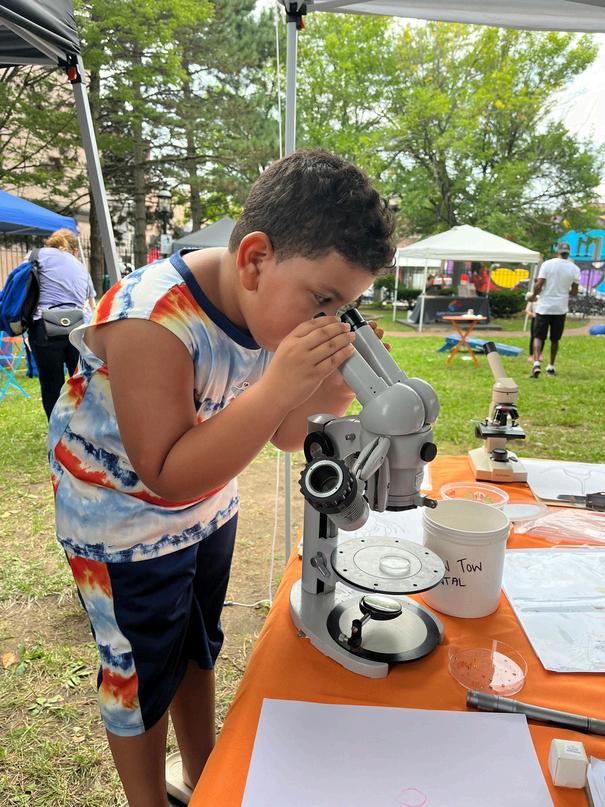
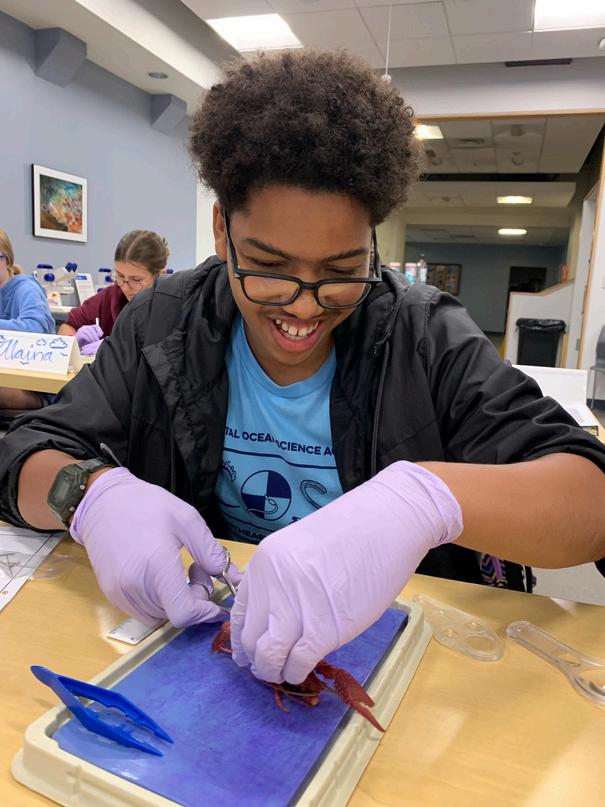
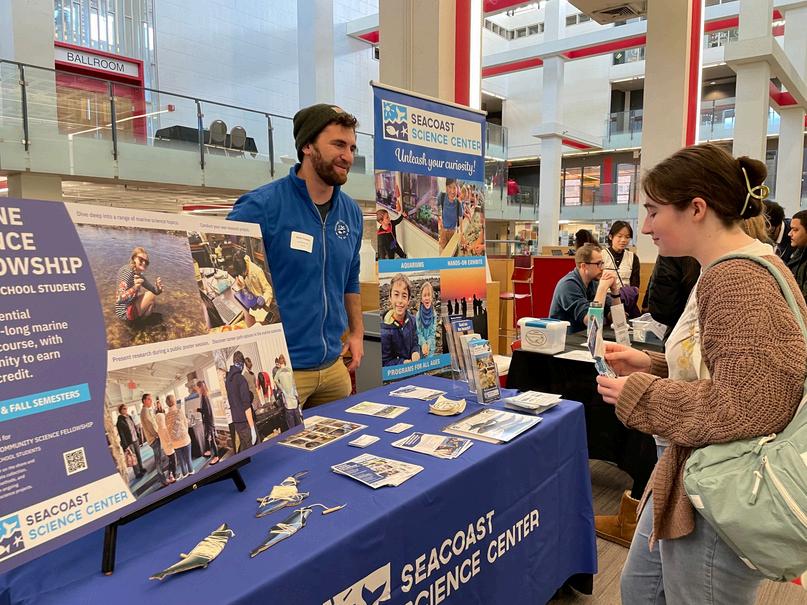
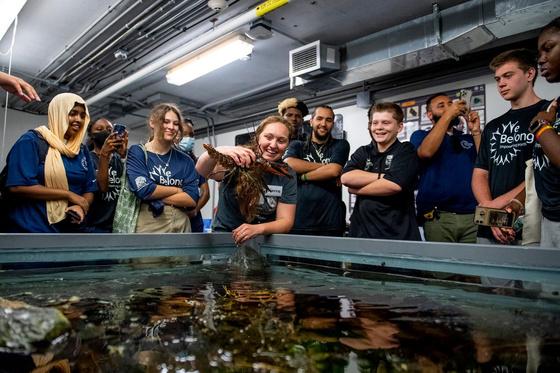

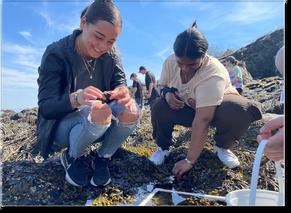
Our department is committed to building sustainable coastal communities by developing future leaders in research through training and mentorship, and by building coalitions and partnerships in conservation, restoration, and policy. Our role as host for the MassBays Partnership and the graduate pathway BEACHES programs exemplifies these commitments.

The MSC proudly serves as host for the Metro Boston Region of the Massachusetts Bays National Estuary Partnership, an EPA National Estuary Program. MassBays’ mission is to empower 50 coastal their coastal habitats. state, and federal entities d provide technical support for better decision making

), our MassBays regional hub, began an exciting er representation and setting regional priorities for
In 2023, BHEN and partners conducted several interdisciplinary workshops and programs in the Metro Boston region, to educate around salt marsh restoration, recent invasive species data and trends in our region, interactions among range-expanding fish, fisheries, and fishing communities, and citizen science tools to detect and track non-native species.
For several years, our community has hosted BEACHES: Bridging Each Applicant's Chances for Higher Education Success - a workshop that aims to demystify the process of applying to graduate schools in the fields of Marine Science, Environmental Science, Geoscience, Sustainability Science, Ecology, and Evolution.
In 2023, participants met with Northeastern faculty to discuss ‘nuts and bolts’ of the graduate school application process – navigating interviews, building CVs, finding the right mentors. The program particularly seeks to provide these resources to young scientists from marginalized backgrounds who might not otherwise have access to them.
BEACHES provides a unique opportunity each year for our faculty, post-docs, and graduate students to mentor future scientists outside of our community in an impactful way
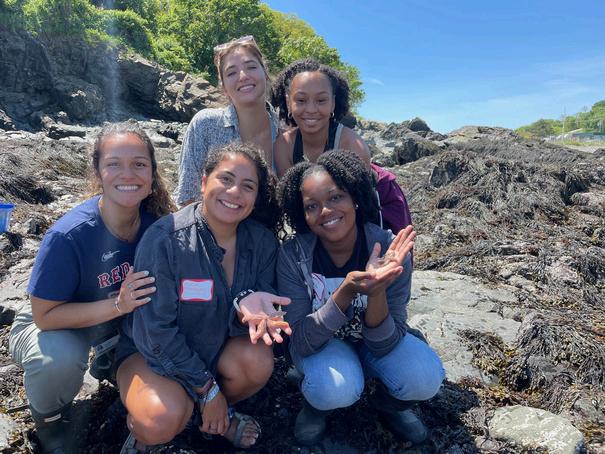
I was not considering grad school before this program because as time went on, I was afraid I was not good enough and believing it was too much work. Now, having completed the program, I feel more confident not just in applying to grad school but in myself. I can do anything if I have the right support system. I feel like I do now.
- 2023 BEACHES participant
A SPECIAL THANK YOU TO ALL OF OUR GENEROUS DONORS IN 2023!
WE’D LIKE TO TAKE A MOMENT TO RECOGNIZE OUR DONORS OF $250 OR MORE.
ANONYMOUS DONORS
RICHARD W. AND ELAINE E. BARRETT FOUNDATION
CELL SIGNALING TECHNOLOGY, INC
CHOBANIAN-SULLIVAN FOUNDATION
LINDA COMB
MARILYN J. COMB
SUSAN S DEITCH & D LARRY DEITCH
PENELOPE DEVOE
DANIEL LOUIS DISTEL
HALVERSTADT FAMILY
ELYSIUM HEALTH, INC
GEORGE R FEEHERY JR.
DAVID COMB & COLEEN FITZGIBBON
IAN H GARDINER
PHILIP GOELET
FRANCIS GOELET CHARITABLE LEAD TRUSTS
JOHN E. GREEN, '83
AUDREY M HASHIM '62 & GEORGE A HASHIM '62
CAROL & JEFFREY HORVITZ
JEFFREY E. HORVITZ FOUNDATION
ROY L HUGHES, '75
THE JACKSON LABORATORY
JOSEPH J JANKOWSKI MD, '59
VIOLET M. JOHNSON FAMILY FOUNDATION
SOLOMON H KATZ
REBECCA A KUCERA & PETER H HARTLINE
JEANNE KUZIRIAN & ALAN M. KUZIRIAN, '69
LEONARD F. MCNALLY, 72 & FRANK DOLL
PETER NATHAN
NEW ENGLAND BIOLABS, INC
GEORGE PUTNAM III
KAREN I BEDROSIAN RICHARDSON, '70
MARTIN N , '68 & BERTA RIDDLE
RICHARD J ROBERTS
CHARLES E RYAN
SANDRA TERRELL & CHARLES R TERRELL, '68
ROSTRA THERAPEUTICS
CITY OF SALEM BOARD OF COMMISSIONERS OF TRUST FUNDS
SILRAY INC
JOYCE TOHER
ROBERT J TRIGILIO, '74
UNDERLINE SCIENCE
KENNETH WERTZ
APRIL ZHONG
YOUR SUPPORT HELPS US BETTER UNDERSTAND AND SUSTAIN COASTAL ECOSYSTEMS AND HUMAN COMMUNITIES. TO LEARN MORE ABOUT MAKING A GIFT TO THE MARINE SCIENCE CENTER OR COASTAL SUSTAINABILITY INSTITUTE, PLEASE VISIT
msc@northeastern.edu
MAILING ADDRESS : Marine Science Center 430 Nahant Road Nahant, MA, 01908 ON THE WEB: cos.northeastern.edu/marine-environmental-sciences/ cos.northeastern.edu/marinescience/ research.northeastern.edu/coastal-sustainability-institute/ EMAIL:
